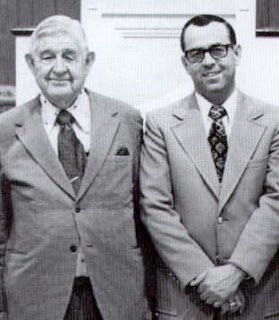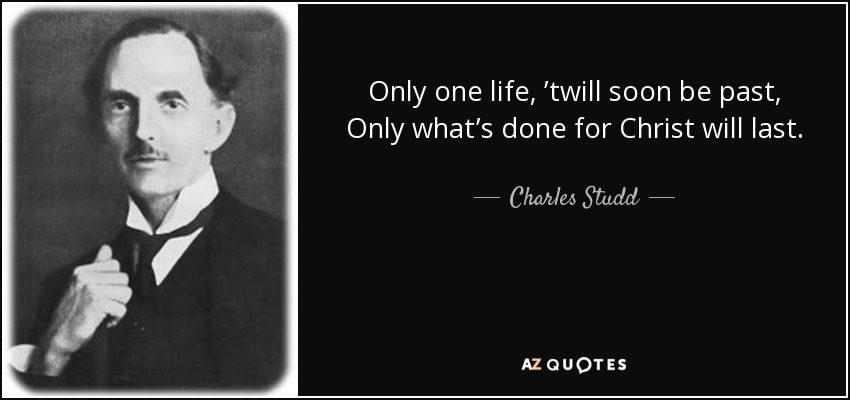
Jesus told his disciples in John 15:5, without me, ye can do nothing, and in Matthew 19:26, Jesus said with men this is impossible; but with God all things are possible. The Apostle Paul told Athenian idolaters that one true God was he who gives to all men not only life and breath, but all things (Acts 17). In his New Testament writings, Paul, the founder of Christianity, advances the notion that God is the sovereign of the universe and that everything that happens is according to his purpose and plan. Paul cautions Christians about trying to live life in their own strength, that doing so will end in failure. He wrote in Philippians 4:13, I can do all things through Christ which strengtheneth me. The negative inference is clear, I can’t do anything without Christ, echoing Jesus’s words in John 15, without me, ye can do nothing.
Evangelicals believe that humans are inherently broken, born with a sin nature, and at variance with the Christian God. According to Evangelicals, everyone, from fertilized eggs in the womb to infants and from children to centenarians, is predisposed to sin — sin being the transgression of the law of God in thought, word, and deed. Countless human behaviors, especially those of a sexual nature, are, according to the Bible — an ancient religious text supposedly written by the Christian God — violations of God’s law. Unbelievers — people who have not asked Jesus to save them from their sins — are told that God hates sin and those who do it, and the only way to gain God’s favor is to prostrate oneself before the thrice-holy God and confess that you are a worthless worm deserving of eternal punishment in Hell; that the only person who can save you from your sin is Jesus. If you humble yourself before God, begging him for deliverance from your sin, God will forgive you of your sins (but only if you are one of the elect, according to Calvinists). Once you have sufficiently humbled yourself before God and he has saved you, God, in the form of the Holy Spirit, takes up residence in your “heart.”
Once people have been saved, they are instructed to rely on God to lead and direct their lives. Their “sin natures” haven’t been eradicated, so Christians must rely on the Holy Spirit to guide them through a world bent on destroying them. Evangelicals are frequently reminded by their pastors about the importance of studying the Bible, tithing, praying, tithing, and faithfully attending church. Yet, despite all of these things, Evangelicals continue to sin, often at levels equaling or exceeding that of the unwashed, uncircumcised Philistines of the world.
Even those who are called men of God — people who supposedly have a close relationship with God — are not immune from sinning. These preachers of righteousness and holiness often commit the very sins they thunder against each and every Lord’s Day. And as the Black Collar Crime series reveals, preachers can and do rape, steal, molest children, and murder. While defenders of all things Evangelical will say that while such reports are disturbing, most pastors don’t do such things; certainly they would be right, but what is never addressed is the how and why these things happen. If God is who Evangelicals say he is and the Holy Spirit lives inside every believer, why is there so much sinning going on among Christians and their leaders? Why does rarely a day go by without one or more Evangelical preachers appearing in the news for some sort of sexual crime? And these are just the ones caught with their pants down!
Evangelicals practice what I call wash, rinse, dry, and repeat. These followers of Jesus are commanded to daily confess their sins. I John 1:8-10 states:
If we say that we have no sin, we deceive ourselves, and the truth is not in us. If we confess our sins, he is faithful and just to forgive us our sins, and to cleanse us from all unrighteousness. If we say that we have not sinned, we make him a liar, and his word is not in us.
Weekly, daily, and hourly Evangelicals plead with their sin-forgiving God to wash their “hearts” clean. Without any proof besides feelings of relief or words found in an ancient religious text, Evangelicals believe that sincere prayers of repentance are met with God’s forgiveness. With their sins forgiven, Evangelicals return to a world awash in sin, promising God that they will not succumb to temptation and the snares of Satan. Yet, moments or hours later, Evangelicals find themselves yet again in need of confessing their sins and seeking forgiveness from God. It is for this reason that Independent Fundamentalist Baptist (IFB) luminary John R. Rice encouraged Christians to “keep [their] sin lists short.” Rice suggested that when Christians become aware they have sinned they should immediately stop and confess the sin and seek forgiveness. Since Evangelicals sin in thought, word, and deed, following Rice’s admonition would require them to continuously pray. If only the Bible had something to say about this. Oh wait, it does! 1 Thessalonians 5:17 states, praying without ceasing.
Several years ago, a person I know well was arrested for DUI and sentenced to ninety days in jail as a repeat offender. This man has had numerous arrests for a variety of crimes. Father to numerous children with several women, this man has spent much of his life battling drug addiction. Having had and lost countless well-paying jobs and having ruined his relationship with his family, his life, a tragedy to behold, is a screaming example of the failure of Jesus to fix what ails the human race.
This man was raised in an Evangelical home, attended a private Christian school, and was surrounded by extended family who were preachers of the gospel. His parents lived what is best described as up-and-down lives, in and out of church as they dealt with familial, marital, and employment problems. Counseled by pastors to GET RIGHT WITH GOD, they would return to the church, often coming to the church altar to confess their sin and renew their commitment to Christ. And for months or years their renewed devotion would give the appearance of a family happily in love with Jesus. And then, as sure as the sun comes up in the morning, Satan and the lusts of the flesh — according to their pastors — would trip them up, causing them to fall headlong into sin. Often they would remain in the pigsty of sin for months or years before one of God’s men convinced them to return to church to do business with God. This endless cycle of sin, confess, repent, forsake, repeat was played out dozens of times over the years, leading to untold psychological and physical harm.

The drug-addict son, following what has been modeled to him by his family, has run from Evangelical church to Evangelical church, hoping to find the forgiveness of sins and victory over his many addictions. At these churches, he is met at the door by preachers who promise him that Jesus can fix whatever ails him. GET RIGHT WITH GOD, he is told, by Evangelical family and strangers alike. If he will just confess his sins and seek forgiveness, Jesus will swoop in and give him victory over crack, PCP, meth, alcohol, and his love of sexual immorality. His devoutly Evangelical grandparents continue to pray, encouraging their sinful grandson to get back in church so he can get the help he needs.
This rolling train wreck has been going on for over a decade, with no end in sight. Those closest to him continue to encourage him to cast all his cares on Jesus, telling him that if he will do so, Christ will give him victory over his addictions. No one dares to suggest — I am not within his circle of influence — that Jesus and his deliverance peddlers are the problem; that Evangelical beliefs concerning human nature, sin, and forgiveness are actually hurting this man, not helping him; that the best thing he could do is get as far away as possible from Christian family members and preachers who are trying to “help” him; that the church and Jesus are in a codependent relationship with him, and are in no position to offering lasting help.
Those of us raised in the Evangelical church know well the wash, rinse, dry, and repeat way of living. Frequently reminded of our sins by preachers, evangelists, Evangelical writers, and the Bible, we spent countless hours confessing our sins and seeking God’s forgiveness. The churches we attended would call for special meetings where revivalist preachers would come in and stomp on our feet with old-fashioned hellfire and brimstone preaching. Countless time was spent on our knees crying out to God, pleading for forgiveness and deliverance from sins of commission and omission. Sufficiently revived, off we would go, ready to slay our adversary Satan, tearing down strongholds by and through the mighty power of God.
Over time, worldly complacency would set in, and we would need yet another reviving, another impartation of God’s mighty Spirit. Is it any wonder that many Christians weary of the sin, confess, repent, forsake, repeat process and give up or practice the time-honored Evangelical spiritual discipline of “fake it until you make it”? Spend enough time in Evangelicalism and you will learn expected behaviors, complete with a language code to be used to give the appearance of living life as a Jesus-loving, Satan-hating, sin-forsaking Christian. The Apostle Paul himself approved of this approach when he told the Church at Thessalonica to, abstain from all appearance of evil (1 Thessalonians 5:22).
It is evident, at least to me, that Evangelicalism stands in the way of people truly dealing with and overcoming negative behaviors. Over its long history, the Christian church has used fear of judgment and punishment to keep people dependent on God for the forgiveness of behaviors deemed sinful by the church. Over time, the sin lists changed, but one fact remains: Evangelicals cannot find victory over sin in their own strength, and only God can forgive and deliver them. Failure to seek forgiveness results in God chastising (punishing) them for their sin. Want to avoid the punishment of the BDSM-loving God? Evangelicals are told to prostrate themselves before God and beg for forgiveness.
Perhaps it is time for Evangelicals to tell God to take a hike. What has he done for them anyway? Instead of granting them victory over sin, he keeps them dependent on him, often allowing temptations that cause them to fail. What we would think of a person who left meth on the nightstand of his guest room while his recovering drug addict friend was staying with him. Yet, this is exactly what God does. He tempts and tries, and even causes people to fail. Why? Because he wants Christians to love him more and seek his forgiveness. In other words, he is the abusive husband who beats his wife so she will love him more. As is often the case in matters of domestic abuse, removal from the immediate circumstance and divorce is often warranted. Perhaps Evangelicals need to tell God See ya later and turn their attention to finding lasting solutions to issues such as drug addiction. Not only is Jesus not the solution, but he is also the problem. As long as Evangelicals refuse to see this, they will remain trapped in a constant state of wash, rinse, dry, and repeat.
Bruce Gerencser, 68, lives in rural Northwest Ohio with his wife of 47 years. He and his wife have six grown children and sixteen grandchildren. Bruce pastored Evangelical churches for twenty-five years in Ohio, Texas, and Michigan. Bruce left the ministry in 2005, and in 2008 he left Christianity. Bruce is now a humanist and an atheist.
Your comments are welcome and appreciated. All first-time comments are moderated. Please read the commenting rules before commenting.
You can email Bruce via the Contact Form.










